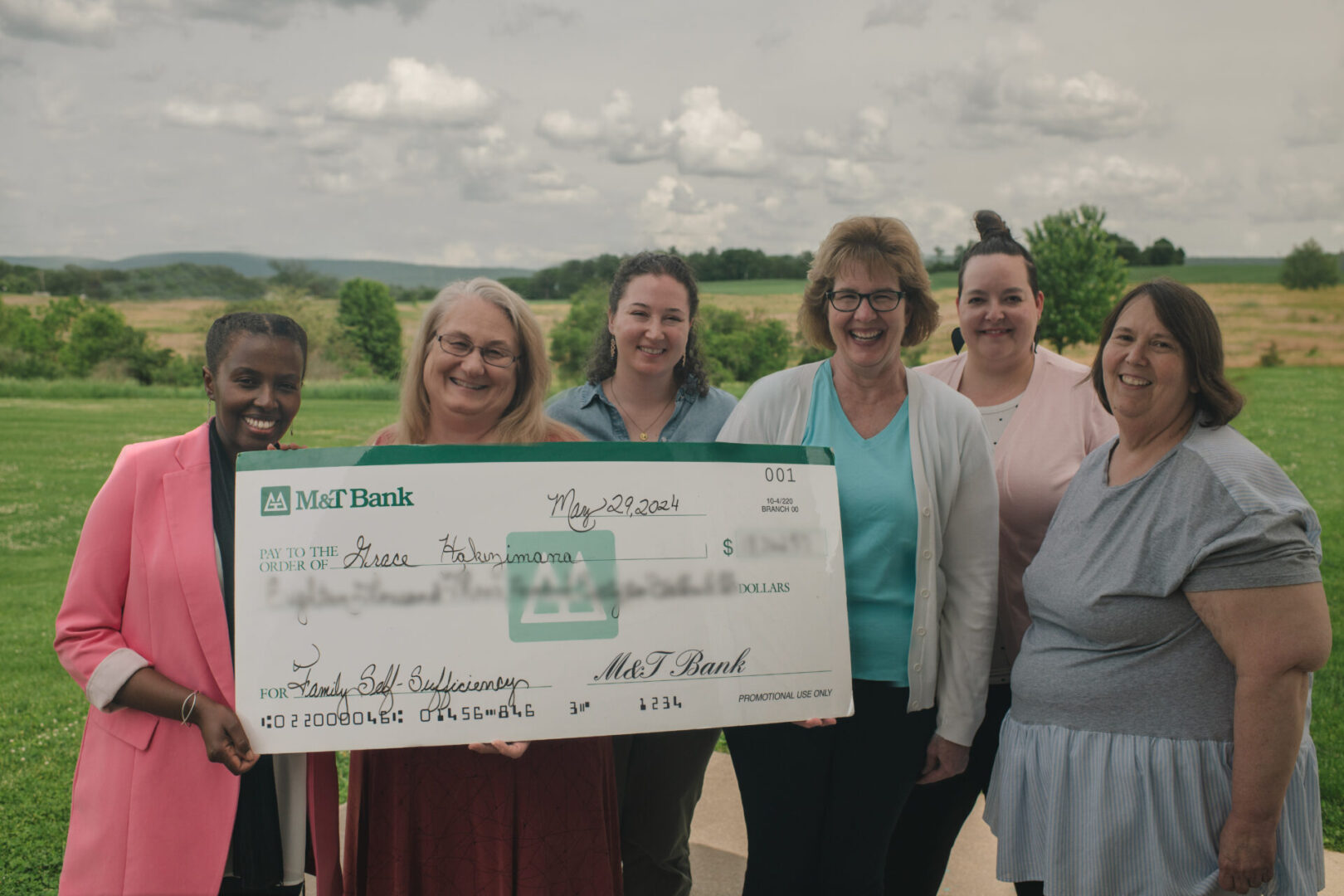This story originally appeared in the May 30-June 5 edition of the Centre County Gazette.
STATE COLLEGE — After seeking asylum in the United States and moving to State College, a Family Self-Sufficiency program participant successfully graduated from the program on Wednesday, May 29.
Grace Hakizimana’s journey to America came out of a necessity for her safety, explained Magdalene Bishop, the family self-sufficiency coordinator for the Centre County Housing Authority. For Bishop, Hakizimana’s graduation is a testament to not only her determination, but the impact kindness can have on a person’s journey toward bettering their life.
“Grace came here with a newborn child and started a whole new life. She managed to get on Section 8, and that was because of the kindness of a neighbor. This neighbor helped her to get all of these other services in place — helped her find transportation, helped her sort out her life,” Bishop said. “And Grace ended up going to Penn State, obtained a bachelor’s degree, obtained asylum and entered the FSS program.”
The United States Department of Housing and Urban Development is a federal agency responsible for overseeing programs related to housing, community development and fair housing laws to create sustainable and inclusive communities. HUD also administers programs like the Family Self-Sufficiency program, which is aimed at empowering individuals and families to achieve economic independence by offering education, job training and supportive services.
“Honestly, the Family Self-Sufficiency program is by far the best kept secret that the federal government has. I mean it is even better than Area 51,” Bishop joked. “It has been proven to be the one type of welfare reform that actually works, but it’s extremely limited in its effort because it’s presented through HUD. So all of the welfare reform tactics that they’ve used, the Welfare to Work program, it’s fallen on its face.”
Bishop explained how the program works with Section 8 families who are housing choice voucher recipients to help them coordinate and develop strategies to increase their earned income and build financial assets so that they can reduce the need for government assistance.
“I recruit from people who are receiving a Section 8 voucher — right now I have a waiting list of 84 people and I’m working with 26 families — and I work with them to set goals to complete over a five-year span,” Bishop said. “They work on these goals and then as they work on them, their amount that they pay on their rent is set at a specific bar.”
Bishop noted how participants cover a portion of their rent and Section 8 covers the rest; however, as they increase their income, they take over a larger portion of rent payments from the government assistance. Though the money is paid to the landlord, HUD then circulates the money back to the housing authority, and the money is then placed into an escrow account that is specifically earmarked for that participant.
“After a person finishes their goals, completes all of them — which I have documented over the five-year span — they can graduate from the program.”
Upon completion of the program, the graduate is given back the money that was invested into the escrow account.
For Hakizimana, her graduation symbolizes overcoming the different adversities she had to face.
“I was determined to be independent and to graduate from the program. And it was important for me to do it to help my son too,” Hakizimana shared. “I started in school, in my undergraduate, when my son was about 2 years old. When I started school I didn’t even speak English, so there were a lot of hard things I went through to accomplish all I did. And many people helped me with that.”
Though Hakizimana was the one challenging herself to achieve her goals, she credits the support from the Centre County Housing Authority and the community for her success.
“Working with an amazing person, like my case worker, and the program made the whole process easier for me. There were times when it could be overwhelming, but I had someone guiding me through it, helping me. Having people dedicated to doing their job was the most helpful thing for me,” Hakizimana said.
Her graduation marks a new stage in her journey, one that she noted she still cannot believe she is entering.
“I couldn’t believe it when I finished the program. I don’t know if I even believe it yet,” Hakizimana shared. “It was a long journey, but it was worth it. I had moments throughout it where I thought I might not be able to reach my goals. But I did it and I would do it again to make mine and my son’s life better. I am grateful for everything the program and my case worker did to help me get here.”



